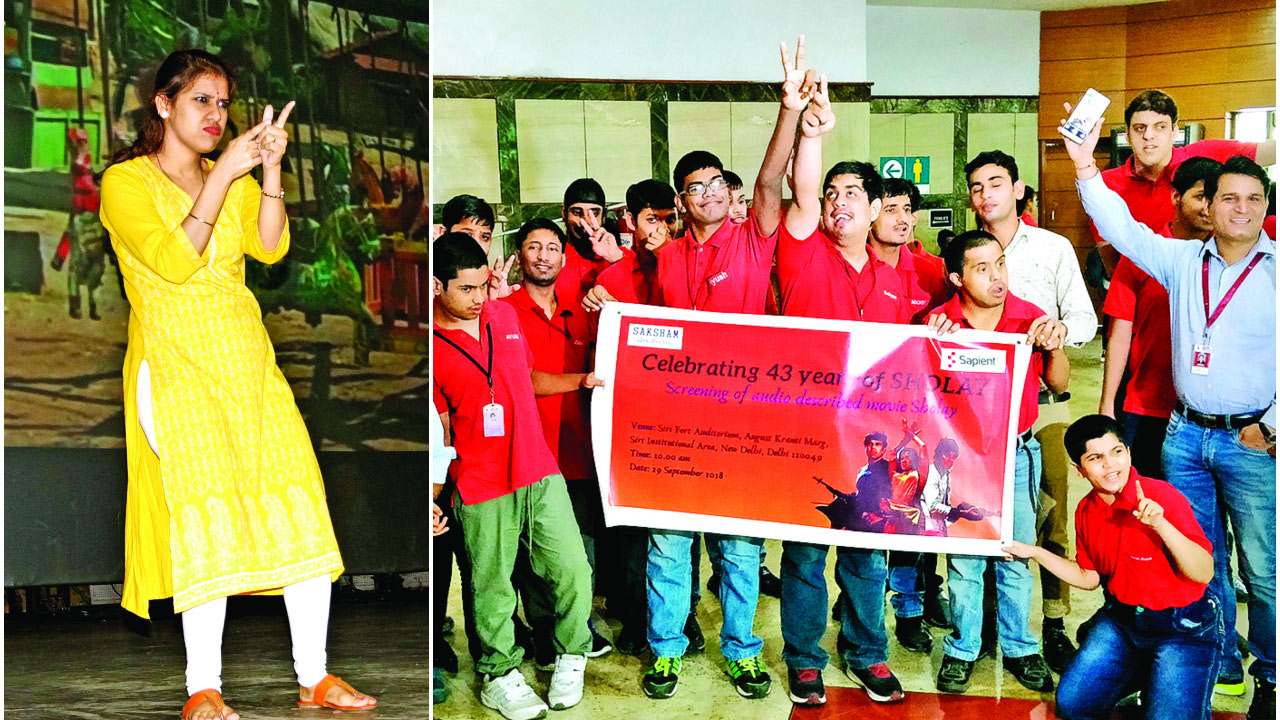
When Dipendra Manocha started the Saksham Trust in 2003, they were concentrating on delivering technology solutions to people with disabilities. "Making appliances and services available to individuals with disabilities was our priority. If someone from rural areas needed Braille reading and writing tools and mobility tools, they had to go all the way to the city to get it. We either self-deliver them or courier them to the recipient," says Manocha.
Till date, the trust continues its work in this field. But, they have also diversified. Manocha, who is visually impaired himself, has dedicated his life to developing a communication and training infrastructure that enables visually impaired people to function independently in mainstream society. Stemming from this is the mobile application XL Cinema that helps people with visual disabilities to watch a film in a theatre through audio descriptions.
In many ways, when Saksham Trust takes over a film to audio describe it, they work on it from scratch. "We watch a film at least seven times before taking it over for audio description," says Narendra Joshi, who lends his voice to the descriptions. "After this, scripting commences, where we make the most of the gaps in between dialogues. The gaps give us space to audio describe the events that go on. On an average, depending on the running time of a film, gaps range from 200-400 in between dialogues."
At the moment, the team is working on audio describing the recent Ayushmann Khurrana-starrer Andhadhun. "The events in the audio-described version for a suspense thriller like Andhadhun needs to unfold exactly when it does on the silver screen. Any gap in this is not going to help the cause at all," he says.
As Joshi works on the scripts and voice-overs, he elaborates just how challenging the activity is. "Today, most Bollywood films are fast-paced, where the story jumps with a background score. In these cases, we look for a gap, where we can introduce some description. At the same time, when there are three or four things happening in one scene with not enough gaps for us to fill, we pick and choose the most important event that is going to immediately affect the film and describe that," he says.
Joshi and his team spends at least 15-20 days on a film. These descriptions are made available on the XL Cinema app (free of cost) and one just needs to plug into a pair of headphones when in the theatre.
The idea behind this project is making people with visual impairments self-sufficient. "They don't need to poke their neighbour in a theatre and ask what's happening when there is no dialogue in the scene. Consider a murder scene where a lot goes unsaid and is often as a part of a background score. When poked and asked, a non-disabled person will just say there is a murder happening, but what really has happened is not conveyed," he says, adding, "We take care of that."
When asked if entertainment is a non-disabled-driven industry, Joshi says the representation of people with disabilities isn't missing, but "movies are made on them; not for them."
However, many producers and production houses are taking cognizance of this fact and taking the necessary steps to make their projects more inclusive. "Many of Aamir Khan's projects (Dangal, PK, and 3 Idiots to name a few) are made available for people with disabilities. We also worked on Rajkumar Hirani's recent film Sanju," he says.
Others like MatchBox Picture, Yash Raj Films and Dharma Productions are in tow, says Manocha. "Production houses are pretty busy ahead of the release of a film. So an audio description is not on their priority list. This is why the entire process only begins a few weeks into the release," explains Manocha.
The team is now working on donations for the app. "Our true success will only come when this initiative comes from within the industry," he concludes.